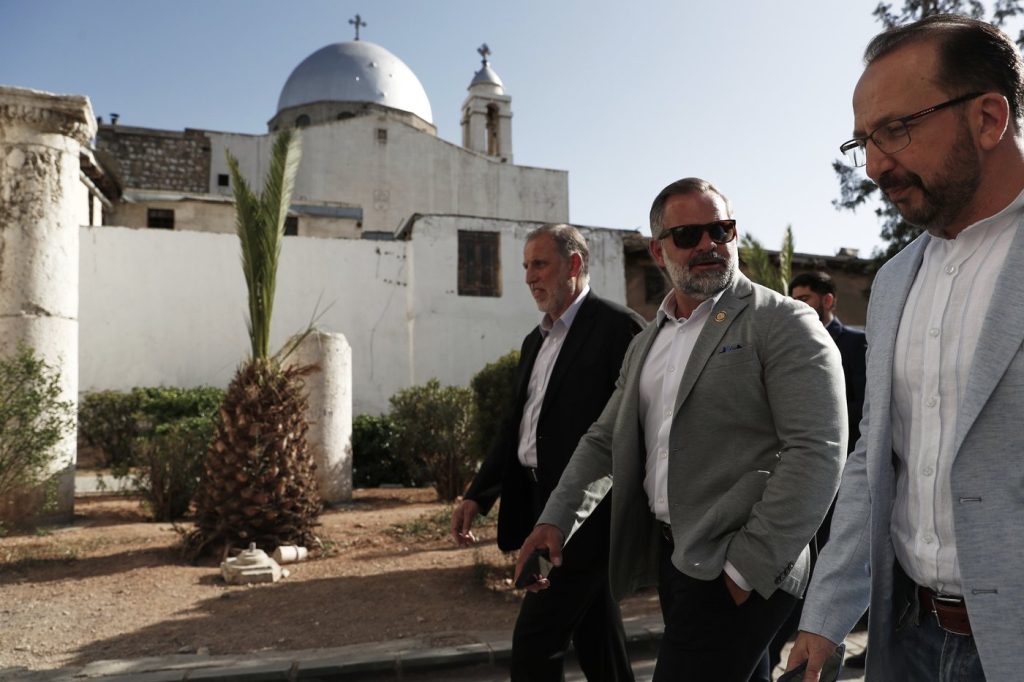DAMASCUS, Syria (AP) – On Saturday, Syria's President Ahmad al-Sharaa welcomed Republican Congressman Cory Mills of Florida in a historic visit, marking the first time American legislators have traveled to the country since the ousting of former leader Bashar Assad in December 2023. This meeting took place in the capital, Damascus, and was attended by Syrian Foreign Minister Asaad al-Shibani. State news agency SANA reported this event amidst ongoing appeals from Syria's new rulers to lift sanctions that Western nations imposed early in the conflict.
Congressman Marlin Stutzman of Indiana, who arrived in Syria on an unofficial visit on Friday, accompanied Mills. Both legislators toured significant sites in Damascus, including the ancient quarter of the city and one of the world's oldest synagogues, which suffered extensive damage and looting during the prolonged 14-year conflict that has resulted in approximately half a million casualties.
On Saturday, Stutzman visited the notorious Saydnaya Prison, located near Damascus, where numerous detainees faced killings and torture throughout the 54-year reign of the Assad family. This prison has become emblematic of the regime's brutal tactics against dissenters and its own citizens.
Under al-Sharaa's leadership, the Islamist group Hayat Tahrir al-Sham executed an offensive that effectively captured Damascus in early December 2023, prompting Assad and his family to flee to Russia, where they were granted asylum. Shortly after Assad’s removal, the Biden administration announced that it would no longer pursue a $10 million reward for the capture of al-Sharaa, a former leader of al-Qaida’s branch in Syria. This decision followed a meeting between al-Sharaa and Barbara Leaf, then the top U.S. diplomat for the Middle East, who led the first U.S. diplomatic delegation into Syria since Assad’s fall.
To date, the Trump administration has not officially recognized the new Syrian government, and severe sanctions imposed during Assad's tenure remain in place. Following Assad's ousting, the U.S. did ease some restrictions for humanitarian aid, allowing specific transactions with the Syrian government, including limited energy sales, under a general license set to last six months.
Despite these developments, Syrian officials continue to advocate for the lifting of Western sanctions. However, the U.S. administration has indicated that it requires steps from the country's new authorities, including measures to protect the rights of religious and ethnic minorities within Syria.
In summary, the recent visit by U.S. legislators marks a significant chapter in Syrian-American relations post-Assad, reflecting shifting dynamics in the region. With the calls for sanction relief juxtaposed against the U.S. administration's demands for human rights protections, the future of U.S.-Syria relations hangs in a delicate balance.










